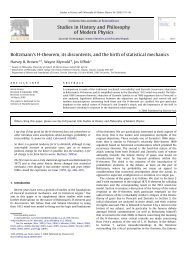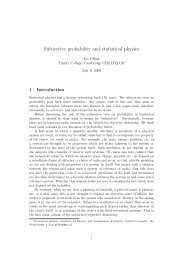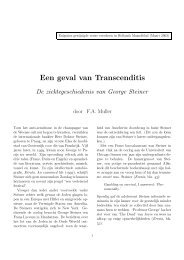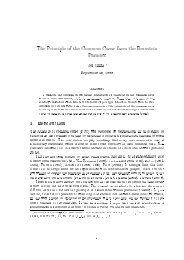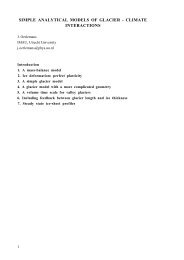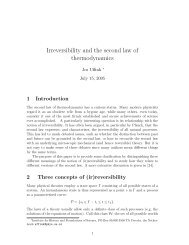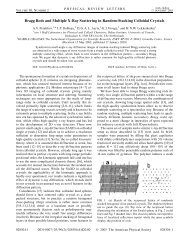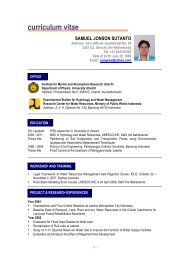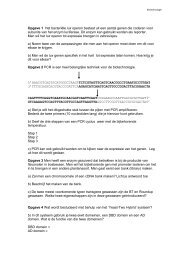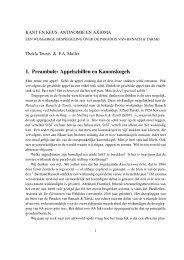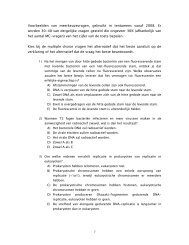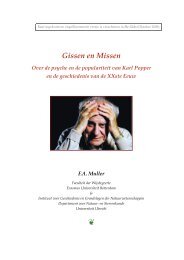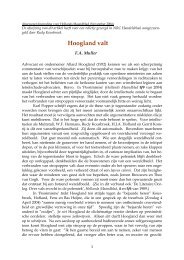FOUNDATIONS OF QUANTUM MECHANICS
FOUNDATIONS OF QUANTUM MECHANICS
FOUNDATIONS OF QUANTUM MECHANICS
Create successful ePaper yourself
Turn your PDF publications into a flip-book with our unique Google optimized e-Paper software.
54 CHAPTER III. THE POSTULATES<br />
which yields for (III. 55)<br />
W (t) =<br />
M∑<br />
i=1<br />
∑n i<br />
j=1<br />
w i U (t − t 0 ) W i,j (t 0 ) U † (t − t 0 ), (III. 57)<br />
and therefore<br />
W (t) = U (t − t 0 ) W (t 0 ) U † (t − t 0 ). (III. 58)<br />
With (III. 11) we find<br />
i d dt W (t) = [H, W (t 0)], (III. 59)<br />
which is the analogue of the Liouville equation of motion, (III. 21), describing the time evolution of<br />
the states ρ. Equation (III. 59) is called the Liouville - Von Neumann equation, it is the generalization<br />
of the Schrödinger equation to an equation for mixed states.<br />
The extensions of the Schrödinger postulate and the projection postulate for mixed states can now<br />
be formulated.<br />
5 ′ Generalized Schrödinger postulate. If no measurements are made on the physical system, the<br />
time evolution of the state of the system is described by a unitary transformation,<br />
W (t) = U (t − t 0 ) W (t 0 ) U † (t − t 0 ). (III. 60)<br />
6 ′ Generalized projection postulate, discrete case. If the system is in a state W when a measurement<br />
is made on a physical quantity A corresponding to an operator A having a discrete spectrum,<br />
and the outcome of the measurement is the eigenvalue a i ∈ R, the system is, directly<br />
after the measurement, in the eigenspace corresponding to the eigenvalue a i ,<br />
W P a i<br />
W P ai<br />
Tr P ai W P ai<br />
. (III. 61)<br />
◃ Remark<br />
Remember that, in general, the projectors P ai do not have to be 1 - dimensional. ▹<br />
Finally, we give a theorem concerning the generalized Schrödinger postulate which is important<br />
for the measurement problem.<br />
VON NEUMANN’S THEOREM A:<br />
The properties ‘pure’ and ‘mixed’ are invariant under a unitary time evolution.



